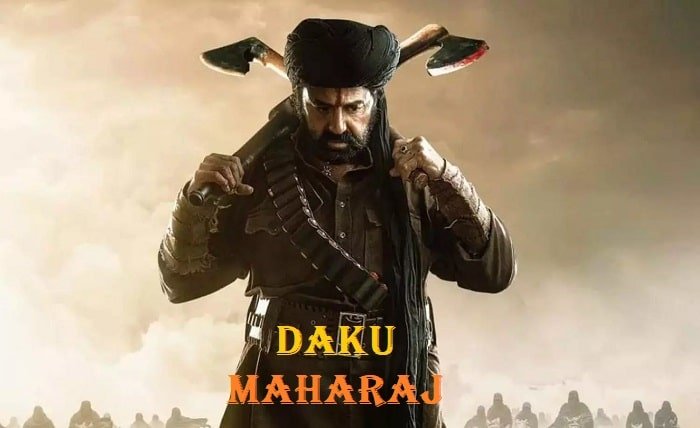Daku Maharaj: The Legendary Figure of India’s Folklore and History

Daku Maharaj is a name that resonates with mystery, awe, and curiosity in Indian folklore and popular culture. The word “Daku” is often associated with bandits or robbers, but the title “Maharaj” indicates a king or ruler. This combination suggests a paradoxical figure – a leader among outlaws or a rogue with a sense of nobility. Over the years, Daku Maharaj has become a legend who is discussed in villages, town squares, and among those fascinated by India’s rich history of bandits and rebels.
The myth of Daku Maharaj has been passed down through generations, with tales of his exploits, his sense of justice, and his unusual leadership. In this post, we’ll explore who Daku Maharaj is, the historical and cultural significance of his figure, and the impact of his legacy on Indian society and folklore. Whether you are intrigued by the life of a notorious outlaw or interested in the historical truths that might lie behind his legendary status, Daku Maharaj is a captivating figure to explore.
The Origins of Daku Maharaj: The Roots of a Legend
The story of Daku Maharaj has roots deeply embedded in the folklore of India, particularly in the states of Uttar Pradesh, Rajasthan, and Madhya Pradesh. While historical records on Daku Maharaj remain scarce, the folk stories about him have kept his memory alive for centuries. Legends vary from region to region, but a common thread links these tales: he is portrayed as a figure who was once wronged by society and took to a life of crime to seek justice.
The Early Life of Daku Maharaj
According to various accounts, Daku Maharaj was not born as an outlaw but became one due to circumstances beyond his control. In many versions of the tale, he was a common man, often from a rural or tribal background, who faced oppression at the hands of the authorities or landlords. The injustices that he suffered pushed him toward a path of resistance against the established norms of the time. In some stories, Daku Maharaj is depicted as a nobleman or a warrior who was betrayed and ultimately turned to a life of rebellion.
The early life of Daku Maharaj is often shrouded in mystery. Some say that he was a victim of political or social injustice, while others claim he was a member of a royal family who turned to banditry after losing his title. Regardless of the specifics, his rise from a humble or noble background to a feared figure in the wilderness is an important part of his story.
The Life and Exploits of Daku Maharaj
Once he adopted the persona of Daku Maharaj, his exploits became the stuff of legends. He was not just any ordinary bandit; Daku Maharaj was seen as a leader who commanded respect and fear. His band of followers, often described as a loyal group of outlaws, respected him as their king. This group would rob from the wealthy or the corrupt and distribute the spoils to the poor and downtrodden.
A Robin Hood Figure in Indian Folklore
One of the most enduring aspects of Daku Maharaj’s legend is his resemblance to the legendary figure of Robin Hood. In many tales, Daku Maharaj is portrayed as a figure who fought for the rights of the oppressed, defying the authorities to bring justice to the common people. He became a symbol of resistance against corrupt rulers, the aristocracy, and the colonial forces that dominated much of India’s history.
While his methods were often violent and lawless, the people who lived in the regions where he operated came to see him as a hero, someone who stood up for them in a world that had largely ignored or forgotten their needs. In some stories, Daku Maharaj is even said to have had a code of honor, ensuring that no harm came to the innocent during his raids.
Daku Maharaj’s Legacy in Indian Culture
The figure of Daku Maharaj has left an indelible mark on Indian culture, inspiring countless adaptations in literature, music, and cinema. His story has been romanticized over time, and he has become an iconic character in Indian storytelling.
Daku Maharaj in Indian Cinema
The influence of Daku Maharaj can be seen in Indian cinema, where the trope of the “bandit king” or the “rebel outlaw” has appeared in many Bollywood films. In some films, his story has been adapted or reinterpreted as part of larger narratives about resistance against colonialism or societal oppression. The portrayal of Daku Maharaj on screen is often a blend of truth and fiction, with filmmakers taking creative liberties to enhance the myth surrounding his character.
Movies like Sholay, The Bandit Queen, and others have portrayed characters that are reminiscent of Daku Maharaj, showing how his legacy continues to influence the cinematic portrayal of outlaws and rebels.
The Impact of Daku Maharaj on Regional Folklore
In addition to cinema, Daku Maharaj has had a lasting impact on regional folklore. In many parts of India, particularly in rural areas, his name is still invoked during storytelling sessions. Traditional folk songs and ballads that describe his adventures and heroism continue to be sung at cultural festivals and gatherings. The legend of Daku Maharaj is not just one of crime; it is a story of defiance, rebellion, and the struggle for justice.
Daku Maharaj’s Social Significance
Daku Maharaj is often seen as more than just a criminal figure. His persona speaks to the social and political climate of the time, particularly the inequalities and exploitation that many faced under colonial rule or the feudal systems of India. His story is seen as an embodiment of resistance to injustice and the failure of the ruling classes to address the needs of the common people.
A Symbol of Resistance
In the eyes of many, Daku Maharaj was a symbol of resistance against the oppression of the downtrodden. His raids and confrontations with authorities were seen as acts of rebellion against a system that favored the rich and powerful. In this sense, Daku Maharaj transcends the traditional image of a criminal and becomes a freedom fighter in his own right. The myth surrounding him suggests that he was fighting for the oppressed masses, giving his story a deeper social and political dimension.
The Debate: Was Daku Maharaj a Hero or a Villain?
While many revere Daku Maharaj as a hero, others argue that his actions were lawless and immoral. The question of whether he was a hero or a villain is a complex one and depends largely on perspective. For the rich and powerful, he was undoubtedly a villain – a threat to their wealth and power. For the poor and marginalized, however, he was seen as a savior, a man who stood up against an unjust system.
Heroism or Criminality?
In analyzing Daku Maharaj’s legacy, it’s essential to consider both sides of the argument. On one hand, his acts of rebellion were often violent and disruptive. On the other hand, his role as a defender of the oppressed and his distribution of wealth to the poor painted him as a champion of justice. The question of heroism versus criminality is central to his story, and it is one that continues to fascinate people today.
Conclusion
Daku Maharaj remains one of the most intriguing and enigmatic figures in Indian folklore. His story is one of rebellion, resistance, and the fight for justice against a corrupt system. While the details of his life remain shrouded in mystery, his impact on Indian culture, literature, and cinema is undeniable. Whether viewed as a hero or a villain, Daku Maharaj continues to captivate the imagination of people across India and beyond.
As long as the tales of resistance and rebellion continue to be told, the legacy of Daku Maharaj will remain an enduring symbol of defiance, strength, and the quest for justice in the face of adversity.
FAQs
1. Who is Daku Maharaj?
Daku Maharaj is a legendary figure in Indian folklore, known for his exploits as a bandit and his resistance against corrupt rulers. His story has been passed down through generations.
2. Is Daku Maharaj a real historical figure?
The historical authenticity of Daku Maharaj remains unclear. While his legend is widespread, there is little concrete evidence to support his existence as a real person. Many believe he was an amalgamation of various bandits and freedom fighters.
3. What are the key characteristics of Daku Maharaj?
Daku Maharaj is often portrayed as a noble outlaw, a figure who fought for justice, defended the poor, and led a group of loyal followers. His heroism is balanced by his criminal actions.
4. How did Daku Maharaj contribute to Indian folklore?
The legend of Daku Maharaj has become a part of Indian folklore, inspiring countless folk songs, stories, and films. He is seen as a symbol of resistance against oppression and injustice.
5. Was Daku Maharaj a hero or a villain?
The debate about whether Daku Maharaj was a hero or a villain depends on one’s perspective. While he committed criminal acts, he is also seen as a champion of the oppressed, fighting against a corrupt system.





